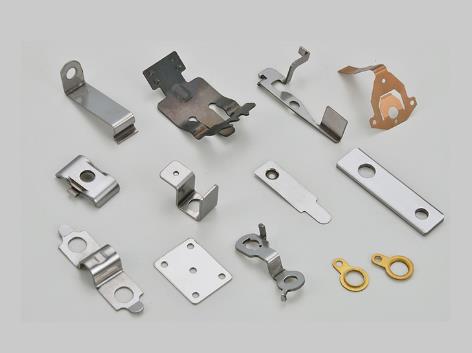Precision stamping parts are typically used to manufacture parts that have strict requirements for size, shape, and performance. These components are widely used in automotive, electronics, aerospace, medical equipment and other fields. When choosing a material for Precision stamping parts, factors such as strength, toughness, abrasion resistance, corrosion resistance, and machinability of the material need to be considered. Here are some of the materials commonly used for precision stampings:
Mild steel: Mild steel has good plasticity and toughness, is easy to stamping and forming, and has a relatively low cost. It is suitable for the manufacture of components with complex shapes that do not require particularly high strength.
Stainless steel: Stainless steel has excellent corrosion resistance and aesthetics, and is especially suitable for precision stamping parts that need to maintain stable appearance and performance for a long time. At the same time, stainless steel has a high strength and is suitable for parts that are subjected to a certain load.
Alloy steel: Alloy steel is suitable for manufacturing precision stamping parts that need to withstand high loads or high friction by adding alloying elements to improve strength and wear resistance. For example, certain high-speed steels and tool steels excel in precision stamping.
Copper and copper alloys: Copper and its alloys such as brass, bronze, etc., have good electrical conductivity, thermal conductivity and machinability, and are suitable for electrical, electronic and decorative precision stamping parts.
Aluminum and aluminum alloys: Aluminum and its alloys are lightweight, high strength, corrosion resistance, etc., especially suitable for precision stamping parts that need to reduce weight. In the automotive and aerospace sectors, aluminum alloys are used in a wide range of applications.
Special metals: For some precision stamping parts for special applications, special metals may need to be used, such as titanium alloys, nickel-based alloys, etc. These materials have excellent resistance to high temperatures, corrosion, or high strength, but they are often more expensive.
When selecting materials, the feasibility of the stamping process also needs to be considered. Different materials have different requirements for process parameters such as die design, stamping speed and lubrication. Therefore, when selecting materials, they should be closely integrated with the stamping process to ensure that the materials can meet the performance requirements and production efficiency of precision stamping parts.
